On October 28, at the National Assembly House, continuing the 8th Session Program, under the chairmanship of National Assembly Chairman Tran Thanh Man, the National Assembly discussed in the hall the Report of the Supervisory Delegation and the draft Resolution of the National Assembly on the results of the thematic supervision of "implementation of policies and laws on real estate market management and social housing development from 2015 to the end of 2023".
In his comments, National Assembly Deputy Le Thanh Hoan basically appreciated the Report of the Supervisory Delegation. The report summarized and gave an overall picture of the real estate and social housing market in recent times.
To clarify further, delegate Le Thanh Hoan has some opinions: In the draft Resolution on supervision, the Government is assigned to have a suitable resolution mechanism, to thoroughly handle real estate projects facing difficulties and legal problems, on the basis of comprehensively considering objective practical factors, specific historical circumstances, fully assessing the benefits - costs and feasibility of the resolution plan so that the real estate market ensures the legitimate rights of people and businesses, for the common good, freeing up resources for the real estate market, creating momentum for socio-economic development; clearly guiding the content of "not legalizing violations" to improve the effectiveness of law-making and enforcement.
Delegate Le Thanh Hoan expressed his agreement and saw the need to clarify further the viewpoint of “not legalizing violations” in order to have a basis to completely resolve the difficulties and backlogs of real estate projects. This is also the difficulty that the Working Group established under Decision No. 153 of January 2022 of the Prime Minister is facing without any effective solution.
Around the world, the notion of “formalizing the informal” or worse, “legalizing the illegal” is often a politically difficult argument, as it seems that the government is favoring or favoring those who do not respect the law. As a result, opposition is often strong, but often without considering the overall benefits of formalization or the costs of doing nothing. For example, property tax, transfer tax will be collected if illegal constructions are completed, registered and put into use. Formalizing informal constructions will bring them back into the economy, on the basis of which real estate transactions such as leasing, buying, selling, inheriting, using and mortgaging will be supported legally, technically and financially.
For projects and construction works that violate the law, there are only two possible options: revocation of the project, demolition of the violating works, or formalization. Doing nothing or “time-limited rescue” is not reasonable unless the problems of such projects have only a negligible impact on the real estate and housing market.
Demolition of illegal structures often wastes social resources, with significant economic, legal, administrative, court, social, carbon emissions and environmental costs. These costs are rarely worth the benefits of demolition. In addition, in some cases resettlement arrangements must be made when the occupants have no other place to live.
Another variation is to legalize violations for a limited period and impose sanctions for non-compliance, or “limited-time rescue”. This means allowing the state to rescue informal construction for a limited period. And in the future, the state will provide a stricter legal framework to ensure construction order. This approach is discouraged by countries around the world because it affects compliance, has social costs, and carries a high risk that violations will not be tolerated.
According to the provisions of Vietnamese law on construction, there are cases of violating prohibitions, such as constructing works that are not in accordance with planning, violating construction boundaries, construction levels; constructing works that are not in accordance with the granted construction permit, there are also provisions on temporary suspension and allowing violators to apply for a construction permit or adjust the construction permit within a certain period of time. According to Decree 16 of 2022 in Article 81, in case of violating the law on construction, if the conditions for granting a construction permit or adjusting the construction permit or adjusting the construction design are met while construction is in progress, the following shall be handled: The competent person is responsible for drawing up a record of administrative violations and requesting the organization or individual committing the violation to stop construction. Within 90 days for construction investment projects and 30 days for individual houses from the date of issuance of the decision on administrative sanctions, the organization or individual committing the violation must complete the application file to the competent authority to issue a construction permit or adjust the construction permit. Is this case a variation of legalizing violations of construction law that have occurred in reality?
Or according to the 2024 Land Law, at Point d, Clause 2, Article 152, it is stipulated that the State shall revoke the issued certificate in cases where the certificate was issued without proper authority, to the wrong land user, with the wrong land area, without sufficient conditions for issuance, or without proper land use purpose... However, Clause 4 of this Article provides for an exclusion and accordingly, the State shall not revoke the issued Land Use Right Certificate, even though the Certificate was issued without proper authority, to the wrong land user, with the wrong land area, without sufficient conditions for issuance, or without proper land use purpose... in cases where the land use right has been converted, transferred, inherited, donated, or contributed as capital in the form of land use rights or ownership rights of assets attached to land in accordance with the provisions of law. Thus, in order to protect bona fide third parties, the Land Law has also accepted the legalization of land use rights even if the land originally originated from an illegal act.
Through monitoring, we have shown the current situation of difficulties and obstacles in real estate projects and social housing projects. However, if we are not determined to review each project and find solutions to each project in terms of which content needs to be amended and supplemented by legal regulations, which content needs to be handled by judgments and decisions of competent authorities, etc., then in essence we are "doing nothing" and in the end, projects continue to grow grass, unfinished works are exposed to the sun and rain, and social resources are still "covered" there. Therefore, the content of "not legalizing violations" needs to be clarified, and this is a very complicated issue, because it is difficult to have a general regulation that is correct for all cases. With the spirit of "not legalizing violations" and having to find mechanisms and policies to resolve this issue to free up resources but must ensure strict implementation of Regulation 178 of the Politburo on controlling power, preventing and combating corruption, negativity in law-making work is a difficult issue, needs to be concretized and soon have policies of competent authorities. It is necessary to determine that if the violation of the law is serious, through consideration and summary of law enforcement, it is found that there are no problems and it is suitable for practice, then it is necessary to thoroughly enforce, overcome violations, strong sanctions such as confiscation, expropriation or complete demolition. If it is really due to the law being inappropriate and needs to be revised, supplemented and approved by competent authorities, then it should be retroactive to exempt from responsibility, but there also needs to be a solution to harmonize interests, especially paying attention to the interests of the people, the community, and the State.
Therefore, with the spirit of not being afraid of difficulties, daring to think, daring to do, daring to take responsibility, for the benefit of the State, the benefit of the People, the benefit of enterprises and implementing the directive of General Secretary To Lam "How difficult it is, solve it, look at each thing to solve it, do not let the situation, regulations that even the State cannot do, how can enterprises do it", it is recommended that the Government and local authorities at all levels need to resolutely take action, review each project, and propose solutions for each project to end this situation.
Quoc Huong
Source: https://baothanhhoa.vn/dbqh-le-thanh-hoan-doan-dbqh-thanh-hoa-can-lam-ro-viec-khong-hop-thuc-hoa-cac-vi-pham-ve-bat-dong-san-nbsp-nbsp-228862.htm


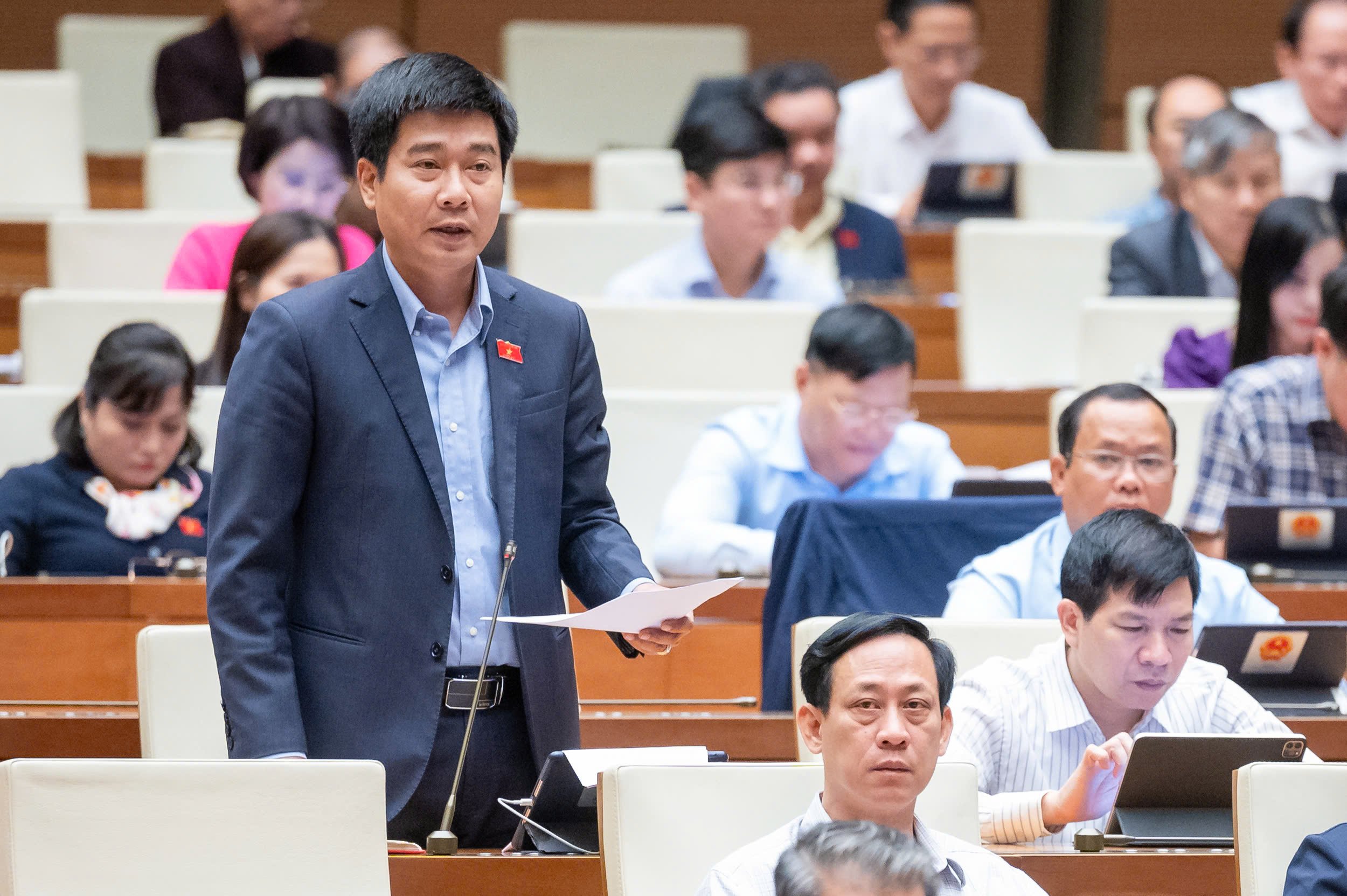
![[Photo] President Luong Cuong attends the inauguration of the international container port in Hai Phong](https://vphoto.vietnam.vn/thumb/1200x675/vietnam/resource/IMAGE/2025/5/13/9544c01a03e241fdadb6f9708e1c0b65)

![[Photo] Prime Minister Pham Minh Chinh meets with US business representatives](https://vphoto.vietnam.vn/thumb/1200x675/vietnam/resource/IMAGE/2025/5/13/5bf2bff8977041adab2baf9944e547b5)











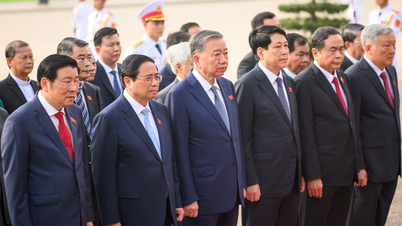
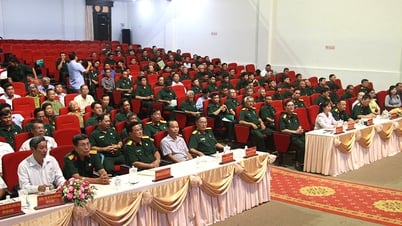
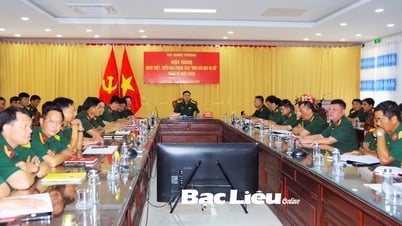
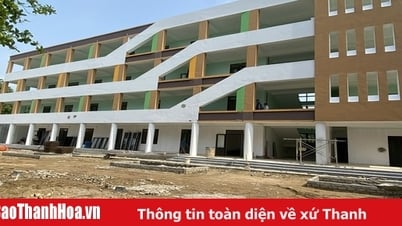


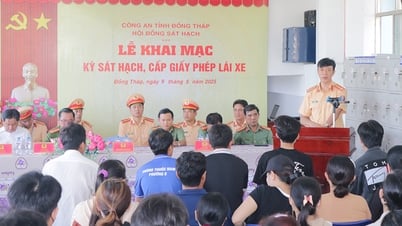








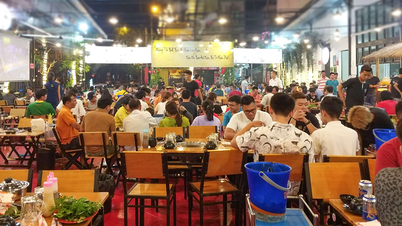











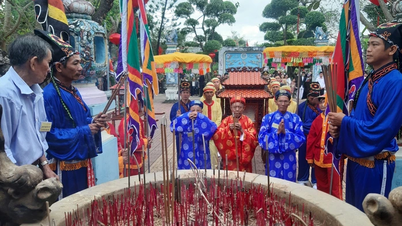





















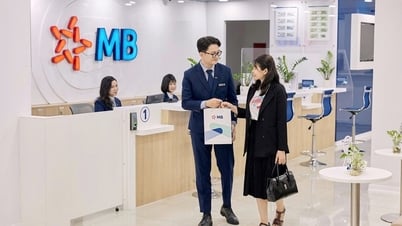
















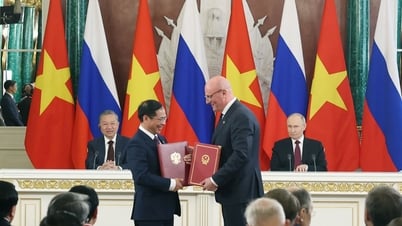


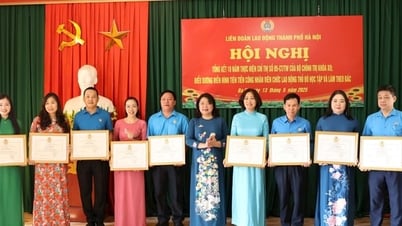

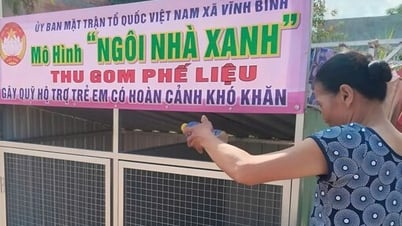

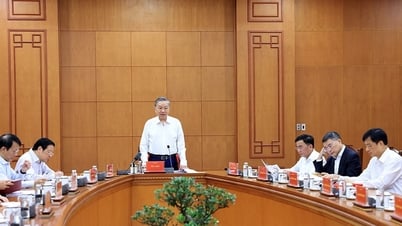












Comment (0)